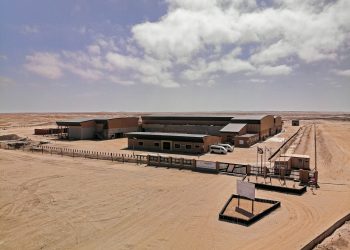
Tridock Shipyard Namibia (Pty) Ltd plans to construct a state-of-the-art drydock facility at Walvis Bay, with an estimated cost of up to N$13 billion (US$728 million).
According to a document seen by Mining & Energy, the project is projected to generate US$150 million (N$2.7 billion) annually in its initial years, with expectations of doubling within three years of commissioning.
The project is expected to create up to 1,000 direct jobs, with numerous indirect employment opportunities.
“As the largest drydock shipyard on the West Coast of Africa, this project will offer unparalleled capabilities, attracting clients globally and potentially becoming the premier destination for maritime operations in the region. The project will stimulate local employment, trade and economic growth, making a substantial contribution to Namibia’s development,” the document says.
The project is expected to be operational by 2031 and will occupy a 65-hectare site, operating 24 hours a day, seven days a week.
“The facility will be designed to attract marine traffic by leveraging its advanced capabilities. It will feature a vast shipyard footprint spanning 65 hectares, operating 24 hours a day in three 8-hour shifts, seven days a week throughout the year,” the document states.
A market study was conducted in 2023 to assess vessel traffic along the south-western coast of Africa.
The study indicated a mid-case total annual potential of 188 vessel repairs, including 85 commercial fleet vessels of 200 meters in length overall (LOA) or smaller and 91 commercial fleet vessels between 200-300 meters LOA.
The construction is scheduled to commence in 2026, with the drydock expected to accommodate vessels up to 300 meters in length and 50 meters in beam.
Furthermore, the facility will cater to offshore oil rigs, dredgers, and large offshore mining vessels, which often travel to South Africa for major repairs.
The primary objective of the project is to position the shipyard as an attractive option for commercial fleets, including locally bound vessels such as anchor handling tugs, platform supply vessels, workboats, and crew vessels.
“The project will also appeal to offshore oil rigs, dredgers, and large offshore mining vessels, which must often travel to South Africa, Cape Town, for major ship repairs, including Debmarine’s fleet, which is currently serviced outside of Namibia,” said the report.
Environmental Impact Assessments for the project are underway.







